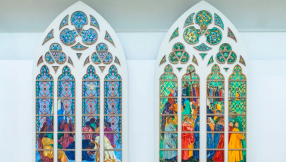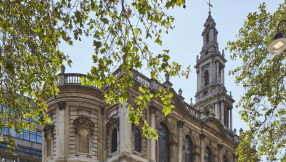This year began with an 'extraordinary boom' in pilgrimages to the Holy Land despite geo-political tensions over Jerusalem, according to the Christian Information Centre there, which confirmed statistics from the Israeli ministry for tourism.
The figures reveal that in January 2018, 770 groups of pilgrims – some 26,000 people – travelled to the Holy Land, a rise from 529 groups who registered in January 2017 and 390 in 2016, Asia News reported.
The upwards trend began at the end of 2017, according to Sobhy Makhoul, deacon of the Maronite Patriarchate of Jerusalem. He said: 'Between November and mid-December there were many pilgrims, so many that for the first time we had to house some of them in the city like Hebron, almost 30 km south of Bethlehem.'
He put the rise down to a growth in Chinese, Russian and Eastern European pilgrims alongside consistent numbers from Europe. 'There is a great movement on the part of the Orthodox Churches, they come in hundreds and hundreds,' he said. 'The fact that Israel has facilitated the visa application for the Chinese has also had a positive impact. For example, those who have already obtained a European visa can enter Israel without problems. Many rich Chinese come here, some of these are Protestants. On paper, for 2018 there is an unexpected demand, we are hoping that the political situation will allow it, that there will be no sparks of tension.'
The deacon emphasised that Muslim pilgrimages to Jerusalem are also on the rise, particularly from Indonesia, Malaysia and Turkey.
Makhoul said that most Palestinians and Israelis just want peace, adding: '[These pilgrimages] are for the good of the population; not only Christians, but also Muslims and Jews. When the economic situation is positive, people live and work. Fundamentalism and terrorism only take root where there is poverty and ignorance. This is something that the Western world must understand, by beginning to think differently about how to act and intervene in our "third world", helping people develop.'
The 'boom' in pilgrims comes despite international tensions over Donald Trump's decision in December to announce that the US unilaterally recognises Jerusalem as the capital of Israel.













